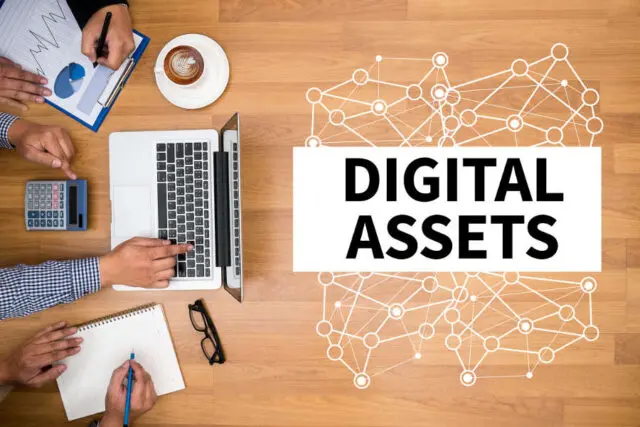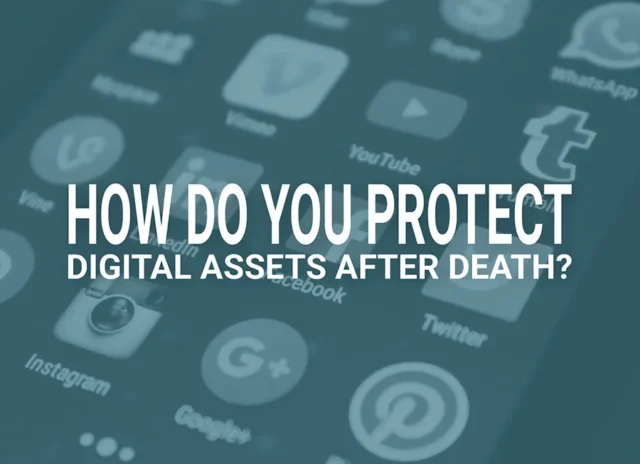
In today’s digital age, our online presence has become an integral part of our lives. From social media accounts to online banking, digital assets hold significant value, both emotionally and financially. Despite this, many Australians overlook these assets when creating their wills. If you don’t include your digital assets in your estate planning, they could be lost, mismanaged, or inaccessible to your loved ones after your death.
In this guide, we’ll explore what digital assets are, why it’s crucial to include them in your will, and the legal considerations you need to be aware of to protect them after death.
What are Digital Assets?

Digital assets are any online or electronic records that you own or control – these can be divided into three main categories:
- Personal Digital Assets: This includes social media accounts (Facebook, Instagram, Twitter), email accounts, photos, videos, and other content stored online or on devices.
- Financial Digital Assets: These are your online banking accounts, cryptocurrency holdings, PayPal, e-commerce stores, and digital investments.
- Business Digital Assets: For those who own or manage a business, digital assets could include websites, domain names, intellectual property, and business-related online accounts such as customer databases or cloud storage services.
Each of these digital assets may have different legal and practical considerations when it comes to inclusion in your will.
Why Include Digital Assets in Your Will?
When you pass away, your physical assets are distributed according to the terms of your will, but without proper planning, your digital assets may not be treated the same way. Here’s why you need to include them:
- Access Control: If you don’t provide instructions for your digital assets, your executor or family members may not have the legal right to access your accounts. Some online services have strict privacy policies, making it difficult to retrieve accounts or data.
- Financial Security: Digital financial assets like cryptocurrencies and online bank accounts can hold significant value. Without clear instructions, these assets may be lost or difficult to recover.
- Preserving Memories: Social media accounts and cloud storage can contain treasured memories, including photos, videos, and personal messages. Including these in your will ensures that your loved ones can access or manage these after you’re gone.
- Business Continuity: If you run a business, it’s essential that your business-related digital assets are accessible to those managing your estate to ensure a smooth transition and avoid disruption.
How to Include Digital Assets in Your Will
To include digital assets in your will, follow these steps:
- Create an Inventory of Digital Assets: Start by making a comprehensive list of all your digital assets. This should include social media accounts, financial platforms, email addresses, and any other online accounts you own. For each asset, note the relevant account details, including login information and instructions for managing or closing the account after your death.
- Appoint a Digital Executor: In some cases, you may want to appoint a specific person to handle your digital assets. This could be the same person as your executor or someone with more technical expertise. They should be granted legal authority to access and manage your digital assets as per your wishes.
- Provide Clear Instructions: In your will, be explicit about what should happen to each of your digital assets. For instance, you may want certain accounts to be deleted, while others should be transferred to a loved one or memorialised, depending on the platform’s policy.
- Stay Up to Date: Regularly review your digital asset inventory and update your will as needed. New accounts or changes in policies may require adjustments to your estate planning.
Legal Considerations for Protecting Digital Assets After Death

Protecting your digital assets involves navigating various legal issues. Here are some key considerations:
- Terms of Service Agreements: Many online platforms have specific terms of service regarding what happens to your account after death. For example, Facebook allows you to appoint a legacy contact to manage your profile, while other platforms may automatically close accounts. Understanding these policies can help you make informed decisions about including digital assets in your will.
- Data Privacy Laws: In Australia, data privacy laws restrict who can access personal information. This can create complications for executors trying to manage digital assets without clear legal authority. It’s essential to give your executor or digital executor explicit permission in your will to access and manage your accounts.
- Cybersecurity and Password Management: Keeping your login details secure is critical. Avoid writing passwords directly into your will, as wills become public documents after death. Instead, consider using a secure password manager and ensure your executor has access to it upon your passing. You can also create a memorandum that lists your login details and store it in a secure location.
- Consult with an Estate Administration Lawyer: Given the complexities of digital assets and evolving legal frameworks, it’s wise to seek professional advice. An experienced estate administration lawyer can help you navigate the legalities of digital assets, ensuring that your wishes are properly reflected in your will and that your executor has the authority needed to carry out your instructions.
Including digital assets in your will is an essential part of modern estate planning
With the right preparation, you can ensure that your online presence, financial accounts, and digital memories are preserved and managed according to your wishes. By creating an inventory, appointing a digital executor, and seeking guidance from an estate administration lawyer, you can protect your digital legacy and provide peace of mind to your loved ones. Make sure your will is as comprehensive in the digital world as it is in the physical one, ensuring that all aspects of your estate are covered.













